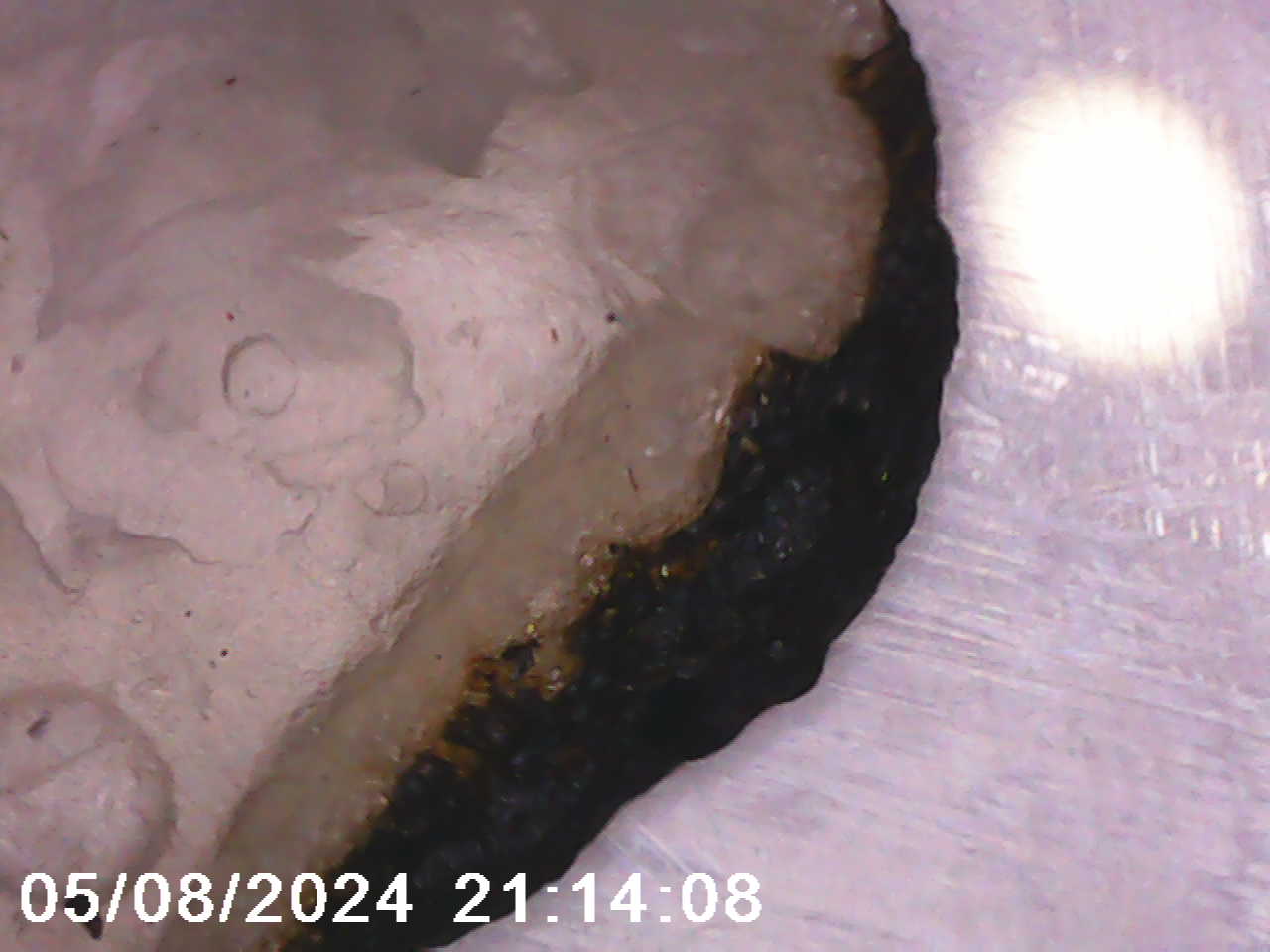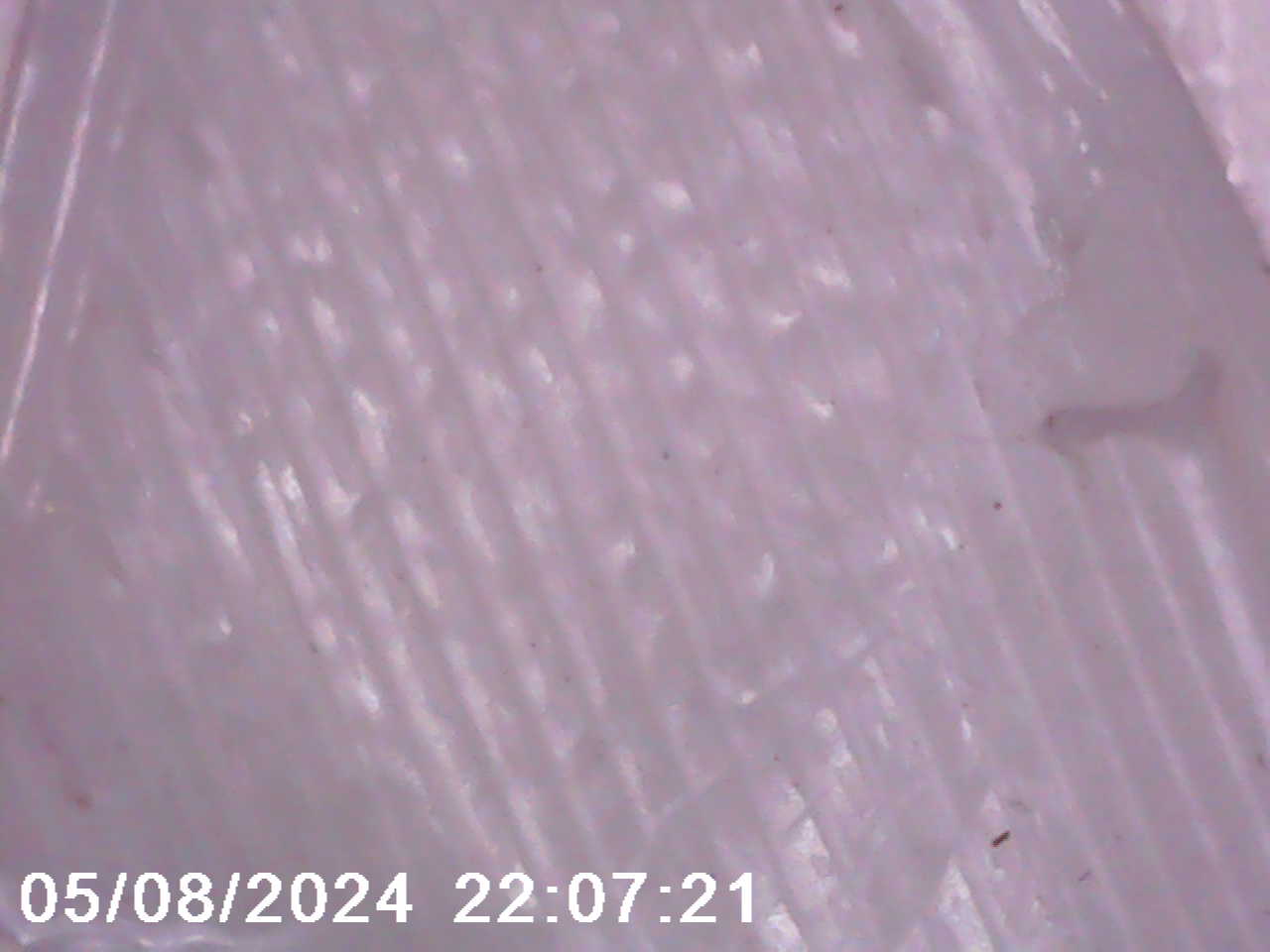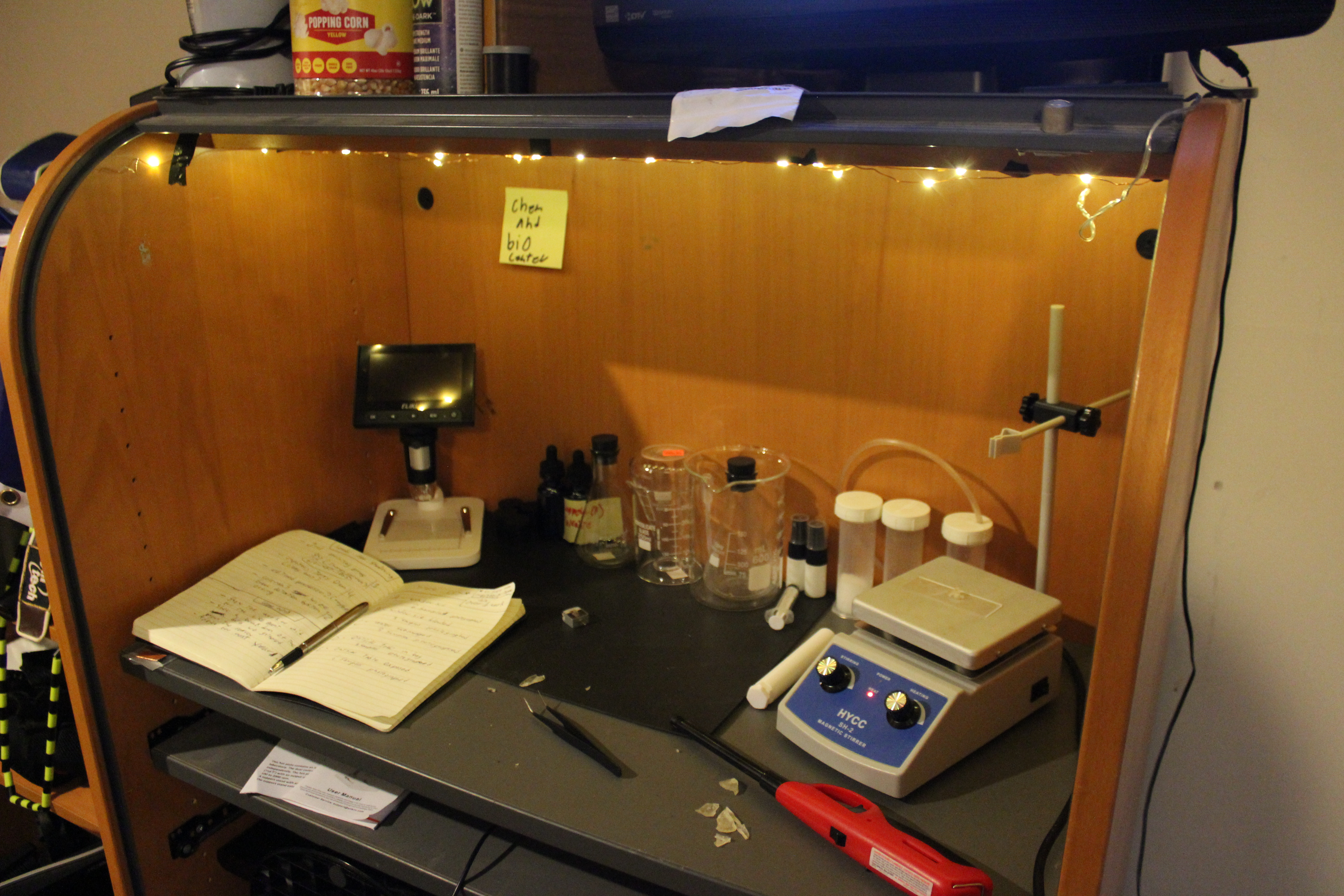note: all samples were initially left in a window for a period of 3 weeks before all further testing shown in these results. all further sample testing took place over the same 7 day period
I did this multivariable experiment to try and understand what results in the creation of bioplastic most similar and and strong to that of traditional plastic

a sample of B after exposed to an open flame

photo of a layer of traditional PLA plastic

-E and E2 are far better then all other samples
-E has a hard structure and appears only slightly clear. it breaks over light amounts of force
-E2 has a much much harder structure then E is a non clear white and only breaks under heavy force
-There seems to be a direction relationship between the strength and hardness of a sample to it's glow under a ultraviolet black light
(note that spooled PLA is also very reactive under ultraviolet light)
-I have no idea why this occurs relationship occurs and i cannot find any public academic paper relating to or mentioning this subject.
-E is quite flammable and emits a slow cracking sound as it burns into a dark ash very similar in texture to a biochar.
-overall E2 (full name: 4-E2) is the best by far, but more research needs to understand why and how it occurs in such an outdoor environment and how to refine it in a consistent process that can be replicated by others.
No Code Website Builder